Minority-Led ‘Fed Up’ Coalition Challenges Federal Reserve Officials
Black and Latino working-class activists attempted to hold leading U.S. economic policymakers accountable to communities of color by posing tough questions to 10 Federal Reserve presidents and governors at the institution's annual Jackson Hole Policy Symposium.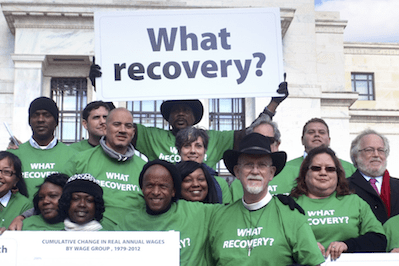 Members of Fed Up demonstrate outside a Federal Reserve building. (Fed Up)
Members of Fed Up demonstrate outside a Federal Reserve building. (Fed Up)
Members of Fed Up demonstrate outside a Federal Reserve building. (Fed Up)
Black and Latino working-class activists attempted to hold leading U.S. economic policymakers accountable to communities of color by posing tough questions to 10 Federal Reserve presidents and governors at the institution’s annual Jackson Hole Policy Symposium on Thursday.
The nonprofit Center for Popular Democracy, home to the Fed Up campaign, explained the reason for the confrontation in advance of the meeting: “As the Fed weighs up whether to raise interest rates in September — a move that would make it harder for our communities to find jobs and win higher wages — over 100 low-wage workers from communities of color will be there to make sure the Fed hears from people who are still struggling in this economy.”
Huffington Post reporter Daniel Marans writes that Fed Up has “met individually with the governors and regional bank presidents before; they spoke with some Fed officials less formally at the past two Jackson Hole gatherings.” This was the first year, however, that members of the group were granted a scheduled audience face to face.
The progressive campaign is calling for the central bank to wait for the economic recovery to reach more broadly across America before raising its benchmark interest rate again, a move that slows the pace of economic growth to head off price inflation.
It has also criticized the Fed for the lack of racial, gender and professional background diversity among its senior officials, arguing that only a central bank that looks like America can craft policy in the best interests of all citizens.
The Fed officials at the meeting were Esther George, president of the Federal Reserve Bank of Kansas City, which hosts the annual symposium; New York Fed president William Dudley; Dallas Fed president Robert Kaplan; Minneapolis Fed president Neel Kashkari; Cleveland Fed president Loretta Mester; Boston Fed president Eric Rosengren; San Francisco Fed president John Williams; Richmond Fed president Jeffrey Lacker, and Fed governors Stanley Fischer and Lael Brainard.
How did it go? Little in the way of a record of the exchanges appears to have made it out of the meeting. But Marans got reactions from Fed Up campaign manager Jordan Haedtler and a spokesman for the Kansas City Fed.
“They were really impressed with how well prepared we were,” said Haedtler after the meeting. “They were heartened by the discussion.”
“We’ll see how things go in September,” he added, referring to the next opportunity for an interest rate hike.
Bill Medley, a spokesman for the Kansas City Fed, also gave positive feedback about the meeting.
“It was a productive dialogue, as it always is, and we look forward to continuing the conversation,” Medley said.
The campaign has met with some success. Democratic presidential nominee Hillary Clinton indicated support for the basic premises of the campaign in May after weeks of private discussion with group representatives.
“Secretary Clinton believes that the Fed needs to be more representative of America as a whole as well as that commonsense reforms—like getting bankers off the boards of regional Federal Reserve banks—are long overdue,” said a Clinton spokesman at the time.
But Clinton stopped short of signing on to a bolder reform proposal that Fed Up rolled out in April, which would turn the central bank system into an entirely public institution. The Federal Reserve Board of Governors is already a federal agency, whose top officials are nominated by the president and confirmed by the Senate. But the 12 regional banks it supervises are owned by the private financial institutions they serve. (Fed Up released a more detailed version of its idea on Monday.)
The private nature of these banks is a major reason why they are run overwhelmingly by white men with backgrounds in finance, Fed Up argues. There has never been a black or Latino president of one of the regional banks, the group notes in its reform proposal, and one-third of the current bank heads are alumni of Wall Street power player Goldman Sachs.
Earlier this month, whether Fed Up would have the opportunity to challenge the Fed was cast into doubt when the group was informed that a computer glitch, as they were told, canceled over a dozen of their room reservations at the Jackson Lake Lodge. After complaining to the U.S. Department of Justice that perhaps they were being targeted, members of Congress sympathetic to their cause sent Fed Chair Janet Yellen a letter asking for an explanation.
In an apparent gesture of detente, George, the Kansas City Fed president, offered Fed Up the big meeting, and the campaign withdrew its objections to the lodging snafu.
Fed Up agreed also to limit its presence in the lodge’s halls during a scheduled cocktail hour. In the past, activists have clustered inside the hotel to confront Fed officials in person. The group held a press conference-cum-rally outside the lodge before Thursday’s meeting. It also plans to run teach-in seminars and to canvass the city’s low-income neighborhoods to spread the word about Fed reform.
But Haedtler, Fed Up’s campaign manager, wanted to focus on Thursday’s meeting. It is evidence, he said, that his fledgling movement’s priorities have made it into the mainstream.
Truthdig intended to cover the confrontation Thursday night via an advertised live stream that never materialized.
—Posted by Alexander Reed Kelly.
Your support matters…Independent journalism is under threat and overshadowed by heavily funded mainstream media.
You can help level the playing field. Become a member.
Your tax-deductible contribution keeps us digging beneath the headlines to give you thought-provoking, investigative reporting and analysis that unearths what's really happening- without compromise.
Give today to support our courageous, independent journalists.


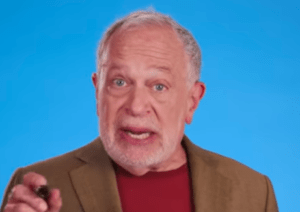
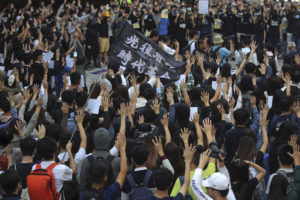
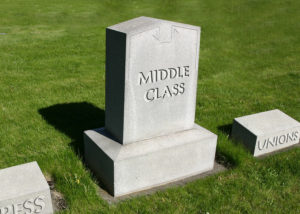
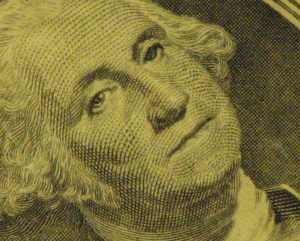
You need to be a supporter to comment.
There are currently no responses to this article.
Be the first to respond.